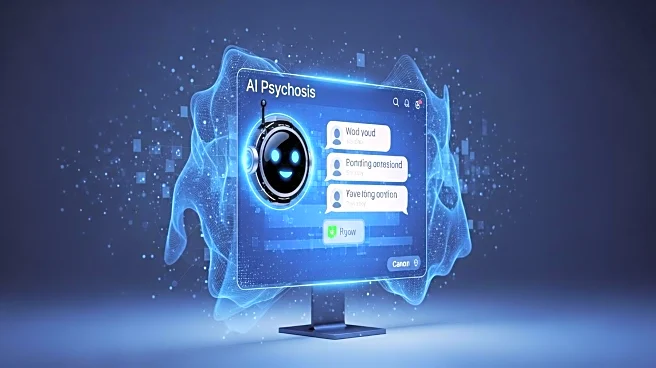What's Happening?
There are increasing reports of individuals experiencing delusions after intensive use of AI chatbots, a phenomenon referred to as 'AI psychosis'. This issue has raised concerns about the potential for large language models to contribute to users losing touch with reality. Dr. Hamilton Morrin, a psychiatrist and researcher at King’s College London, has explored this topic in a recent preprint, examining who might be at risk and how AI models could be made safer.
Why It's Important?
The emergence of 'AI psychosis' underscores the need for careful consideration of the psychological impacts of AI technology. As chatbots become more integrated into daily life, understanding their potential to affect mental health is crucial. This issue could influence public policy and the development of AI technologies, prompting calls for more stringent safety measures and ethical guidelines to protect users.
What's Next?
Further research is likely to be conducted to better understand the link between AI chatbot use and mental health issues. This could lead to the implementation of safety features in AI models to mitigate risks. Additionally, mental health professionals may develop new strategies to address the psychological effects of AI technology.
Beyond the Headlines
The concept of 'AI psychosis' raises ethical questions about the responsibility of tech companies in safeguarding user mental health. It also highlights the need for interdisciplinary collaboration between technologists and mental health experts to ensure AI advancements do not compromise psychological well-being.









